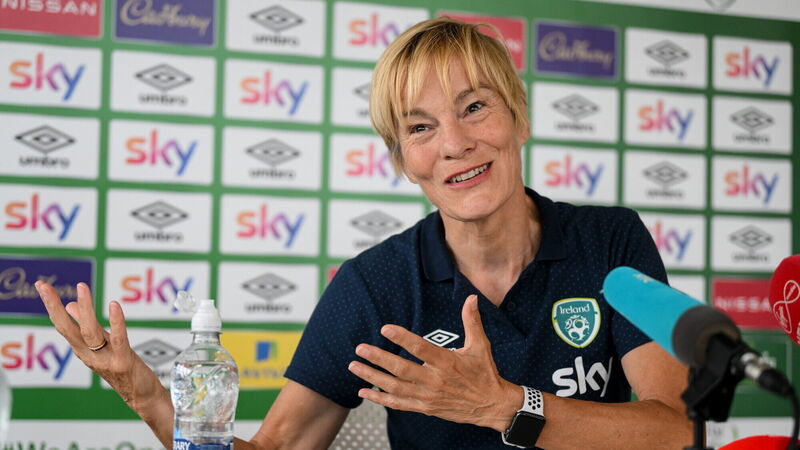Ian Mallon: Sky turns its eyes and resources towards women's football

BOXING CLEVER: Ireland WNT manager Vera Pauw at Sky Ireland Headquarters in Dublin. Picture: Stephen McCarthy/Sportsfile
Amid all of the analysis and speculation of the past two days, the one thing missing from the story of Sky’s withdrawal from the GAA's media rights stable was the ‘Why now?’, as Croke Park prepared its rights deals announcement for the next four years.
While described as a “mutual agreement” by the broadcaster in its goodbye message to Croke Park - received 24 hours before Tuesday's rewritten ‘GAA Broadcast Statement 2023-2027’ - the breakup came despite a lengthy negotiation process, going back to last year.









